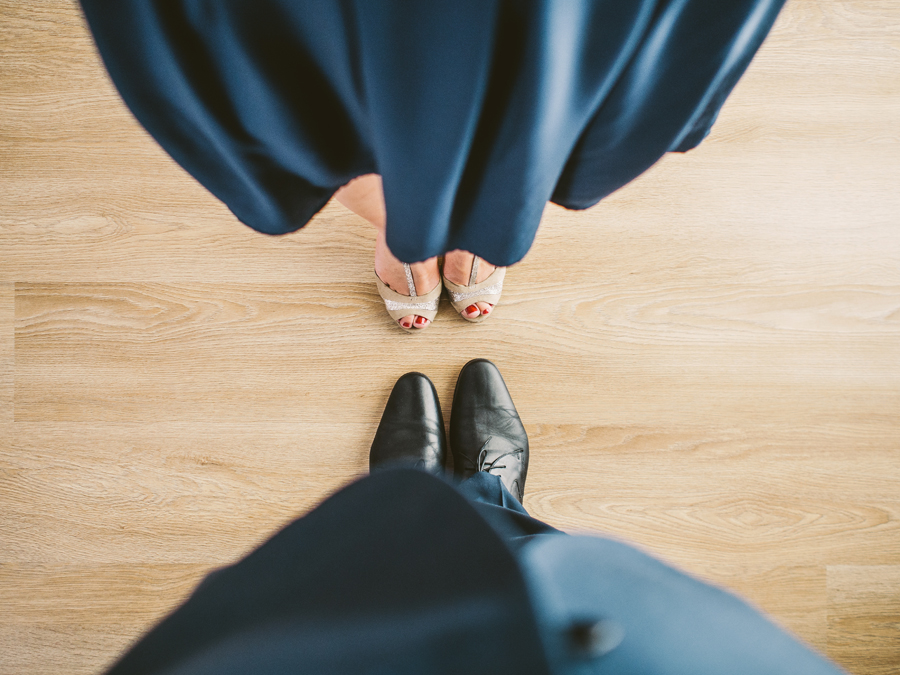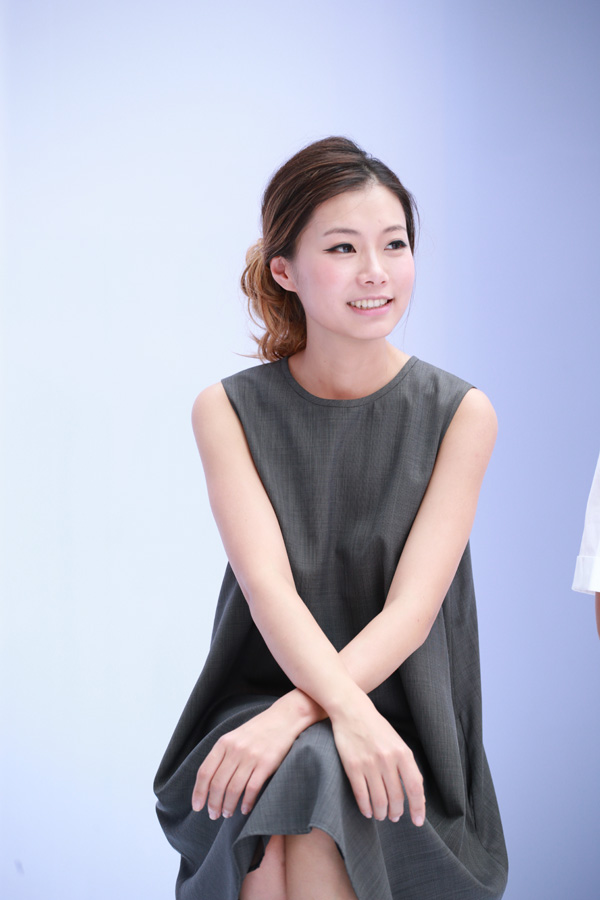
Photo credit: Paweł Kadysz.
Blood, boxing, and champagne. Twice a year, a decadent black tie boxing match takes place on the Bund, Shanghai’s iconic harbor. While boxers circle and pound each other inside the ring, the city’s elite gather over cocktails in floor-length dresses and tailored tuxedos.
“There are all kinds of black-tie events [in Shanghai],” says Crystal Yu, CEO and co-founder of One More Closet, a Shanghai-based startup that lets users lend and rent out formal attire. “Every year in Shanghai there’s a [diner en blanc]. Everyone has to wear white and every year you probably wear a different white outfit.”
Crystal is no stranger to Shanghai’s extravagant social scene. She used to work for M1NT, an upscale nightclub known for its shark tank and debaucherous bar-top dance shows. Before co-founding One More Closet, she was M1NT’s marketing director and handled all its events, marketing, and media promotions. During that time, Crystal became familiar with various brand-name designers, as well as Shanghai’s fashion-conscious socialites.
“These party animals had a lot of clothes,” says Crystal. “They would continuously buy new clothes, wear them once at a party, and almost never wear them again. Sometimes they’d lend and share each other’s clothing.”

Crystal Yu, co-founder and CEO of One More Closet. Photo credit: One More Closet.
But just because you party with someone doesn’t mean you’re friends with them. These informal clothing swaps suffered from trust issues as well as dilemmas around pricing. There was also no process to mediate between lenders and lendees when clothes were damaged. In March, Crystal and four other co-founders created One More Closet to formalize those offline clothing exchanges, enabling anyone to monetize the high-end formal wear in their closet.
It also solved another problem that Crystal knew well: dwindling space in the wardrobe.
“One of my goals for myself this year is not buying any more clothes,” she says, laughing. “Every time I buy clothes, I think that I’ll wear it many times for many years. But after I wear it at an event, I never have the chance to wear it a second time. A lot of clothes are wasted that way.”
Bourgie on
The idea of running out of closet space because you want to wear different clothes every time you party sounds, well, ridiculous. It’s in stark contrast with the 82 million people in China who live on less than US$1 a day.
However, it’s an increasingly relevant debacle for China’s middle-class and and wealthy citizenry, a growing demographic, especially in the country’s larger cities such as Beijing and Shanghai. Not only is the number of millionaires in China increasing, but the annual disposable income of Chinese urban households is projected to double between 2010 and 2020, according to McKinsey.
This means that more Chinese consumers can spend their money on nice things, like fine dining, luxury clothing, travel, and entertainment. One More Closet is leveraging this trend with a focus on China’s fashion-savvy young people, as well as expats, who like to dress well but can’t afford to blow thousands on one outfit.
“Instead of spending money on buying clothes, you can rent them in order to save money and the space in your closet,” says Crystal. ” If you have clothes, you can also share it with others on this platform. This is the concept of the sharing economy.”
One More Closet’s mobile app lets users rent out their high-end clothing for four, eight, or thirty days. Crystal calls this kind of clothing ‘occasional wear’, which means that it’s clothing reserved for special occasions, like charity galas or a cocktail event. There’s no need to rent someone’s secondhand everyday clothing, she says. The point is to let users try new styles and clothes – especially those outside of their usual price range – without having to invest in their own.
“You don’t always want to wear black at events,” she says.

One More Closet partnered with name brands and designers during Shanghai Fashion Week. Photo credit: One More Closet.
Though clothes and accessories on One More Closet are still pretty pricey – a Stella Lam dress costs US$144.81 for four days of wear – they’re a fraction of the original price. For example, the market price for that Stella Lam dress is US$1,030. To rent a product, users have to verify their ID or pay a hefty safety deposit. For each order, One More Closet takes a 10 percent commission.
Similar to Airbnb, users write reviews for one another. Dealing with ruined clothing is part of the business, but so far there have been no nasty disputes, as users have been willing to pony up the money to launder or fix damaged or dirty clothing, says Crystal.
“The lifetime of every article of clothing is getting shorter and shorter,” says Crystal. “If I buy clothes today, I’ll still want new clothes tomorrow. There will always be new products coming out.”
One More Closet wants to lengthen that life cycle not only by letting users rent out their formal attire, but also brands and independent designers. It’s a way for them to monetize runway or showroom outfits, as well as test new products.
The startup is also partnering with clothing rental companies, like companies that rent wedding and bridesmaid dresses. According to Crystal, wedding dresses are more popular among the startup’s users in smaller cities – places which have a more tame social scene. One More Closet needs this kind of professional content from companies, as users are still struggling to upload high-quality pictures of their clothes, says Crystal.
Moving forward, One More Closet plans to target overseas Chinese people, including Chinese tourists as well as the Chinese diaspora. For example, traveling businessmen who don’t want the hassle of dealing with a wrinkled suit in their suitcase could rent directly from One More Closet. The startup completed a three-month program at Chinaccelerator in June, and has soft-launched its app.
Converted from Chinese yuan. Rate: US$1 = RMB 6.78.
This post First-world problems: never repeat outfits with this startup’s app appeared first on Tech in Asia.
from Tech in Asia https://www.techinasia.com/one-more-closet-first-world-problems
via IFTTT
No comments:
Post a Comment